Enroling Out-of-school Girls In Marginalised, Rural Communities Of India
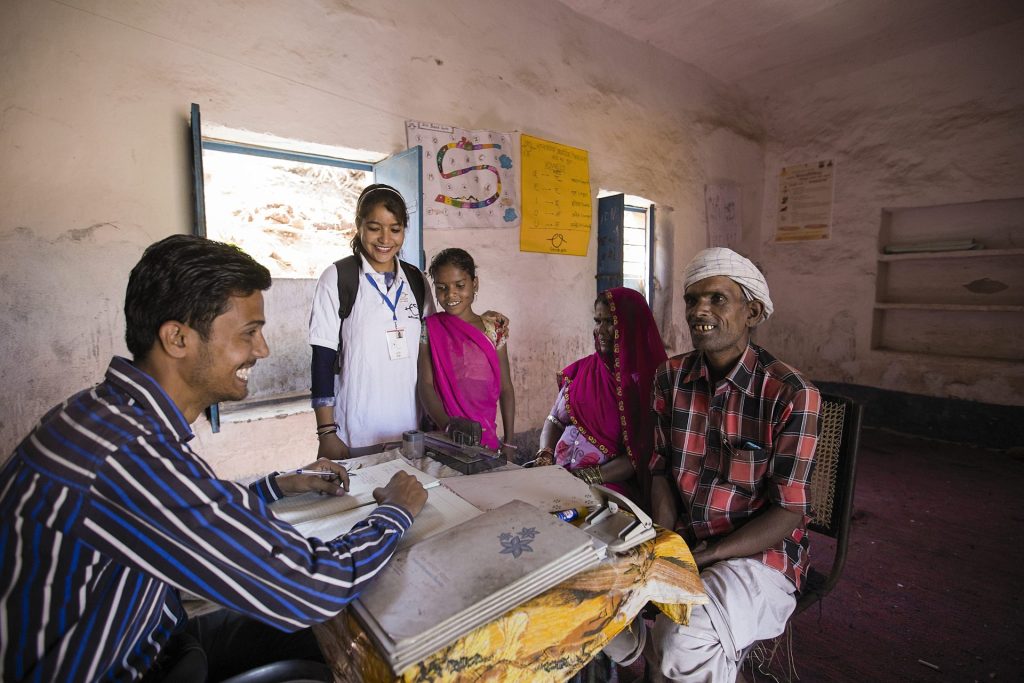
The Right to Education (RTE) Act in India mandates free and compulsory primary education for all children aged 6-14 years.
However, India is still home to millions of out-of-school girls (who have either never been enroled or have dropped out). Especially in rural communities, many girls lack access to quality education and have minimal understanding of their rights. More often than not they cannot contribute towards the progress and development of the country due to lack of education.
Educate Girls, works against this backdrop with the intent to overcome the challenge of gender inequality in education and to provide equal opportunities to girls living in marginalised regions of India.
For this, Educate Girls, in partnership with the Government, mobilises communities, goes door-to-door, conducts village-based community meetings and uses local volunteers and influencers to spread awareness about the countless benefits of girls’ education, attempting to alter mindsets for a sustained change.
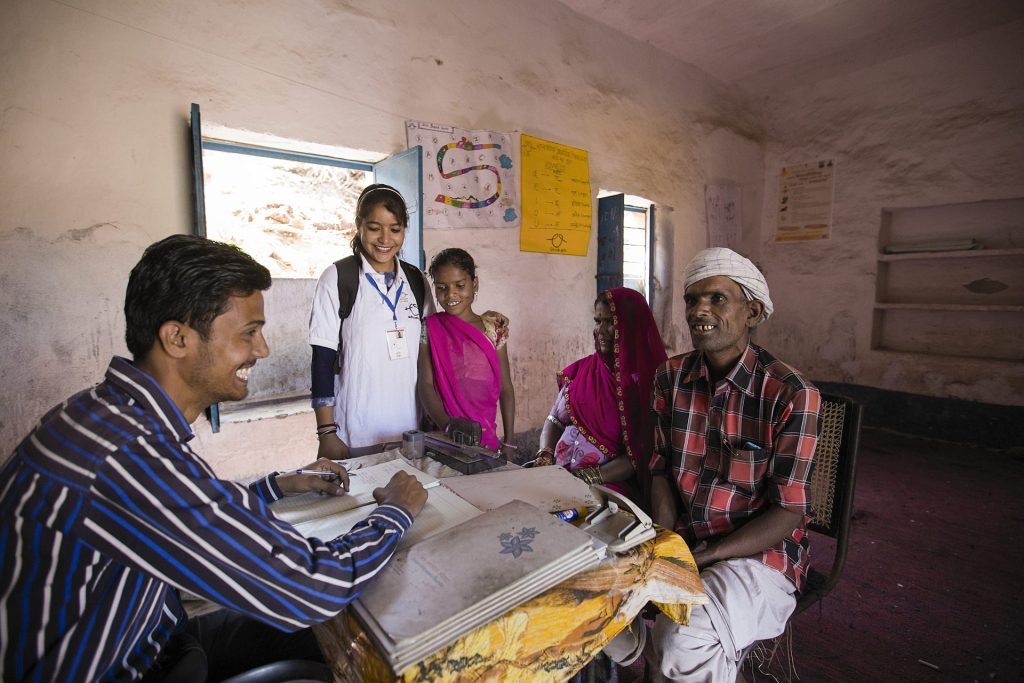
In 2015, when the Educate Girls’ Development Impact Bond (DIB) intervention commenced in 140 villages of Bhilwara district of Rajasthan, Educate Girls conducted a comprehensive door-to-door survey to draw a complete list of eligible yet out-of-school girls. 8-year old Gitika featured in that list.
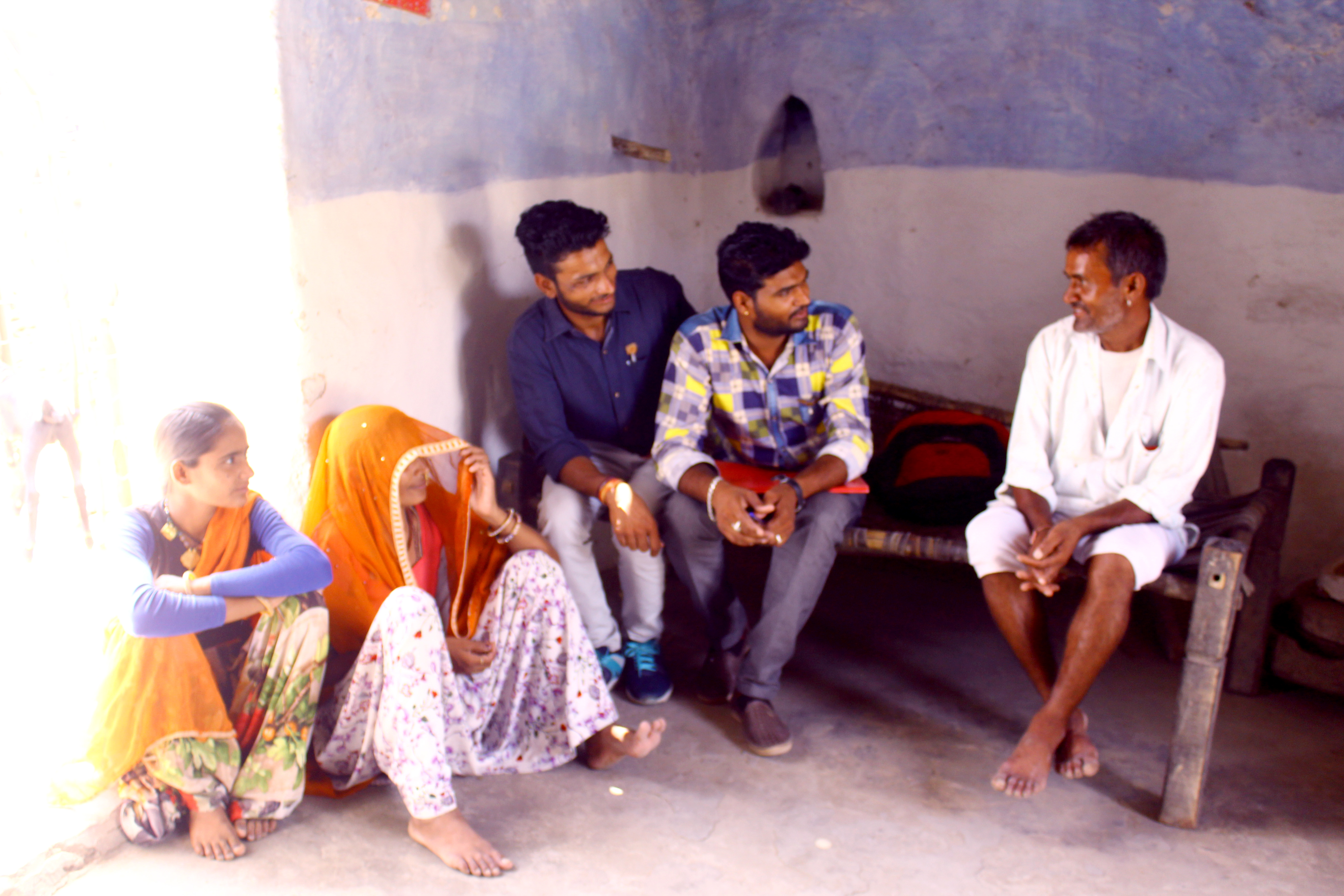
Gitika Gurjar lives in a remote village situated in Bhilwara district of Rajasthan, India. Her father is involved in agricultural labour while her mother, whose health has not been very well for a few years, looks for odd jobs to generate some much needed extra income to meet the needs of her children. Gitika was previously enroled in the Government-run primary school in her village. However, when her elder sister moved to her marital home, Gitika dropped out of school to manage domestic work.
There are several socio-cultural reasons why girls like Gitika are not in school – with patriarchy, gender- based discrimination, and limiting mindsets about gender roles, at the epicenter of those reasons.
So, when a young Gitika was spotted grazing cattle, cooking meals, or looking after her siblings instead of being in school, nobody in the community questioned it. Hereafter, Educate Girls’ team of volunteers and staff visited Gitika’s parents on several occasions to speak about her enrolment but no amount of convincing seemed to work. Gitika’s father argued “If I let her go to school, my wife will have to stay home which would mean less income.” An entire academic year passed by with Gitika still out of school.
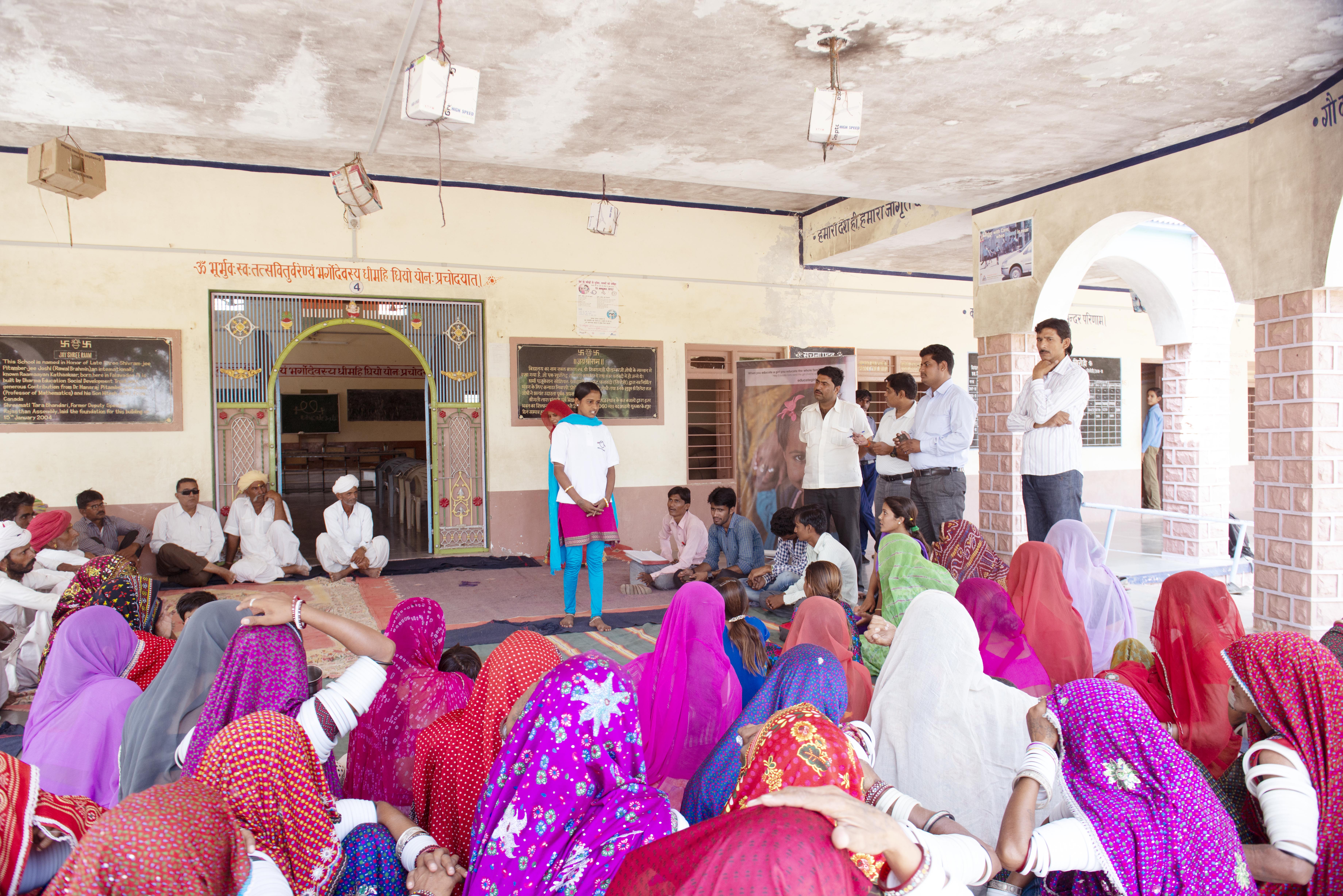
However, the team didn’t give-up and before the start of the next academic year, they reached out to the family with increased rigor, seeking help from the school teachers and village elders as well. They were finally able to convince Gitika’s parents about the importance of educating their daughter by highlighting the stark differences between the future of an educated girl compared to that of an uneducated girl by citing examples from in and around the village. Gitika was eventually re-enroled and she is extremely happy to be back in her uniform, exclaiming “I have many friends to study with again!”
According to Vikram Solanki, who manages the DIB operations in Bhilwara, “In the communities that we work in, it becomes extremely difficult to retain girls in school beyond Grade 5. These are girls who are 9 or 10 years and above. The families of these adolescent girls strongly believe that education is not going to help their daughters after marriage and therefore it’s in their best interest to focus on domestic work, preparing for their marital life in the near future.”
Educate Girls’ DIB therefore focused on improving the outreach for some of these older, harder-to-enrol girls. Recalling one such case, Vikram explains, “We sometimes come across girls, who are engaged to be married or are already married. In such cases, getting a girl back into school is immensely challenging as two sets of families are involved in the decision-making.”
Like in the case of Sarika Bheel, a 11- year old living in another village in Bhilwara, who was identified as an out-of-school girl during the survey.
Sarika dropped out at Grade 5 as the village didn’t have an upper primary school. Her father had also found a suitable match for her. When Educate Girls’ team approached her father, he said, “I may not necessarily appreciate Sarika going back to school, but the final decision will be made by Sarika’s to-be in-laws.” Surprisingly, after a little bit of counseling, Sarika’s to-be in-laws agreed, but they left the final decision to Sarika’s father. Sarika’s father was approached once again and after a few weeks of repeated visits from Educate Girls’ team, he agreed – but with one condition – Sarika would not be allowed to travel out of the village.
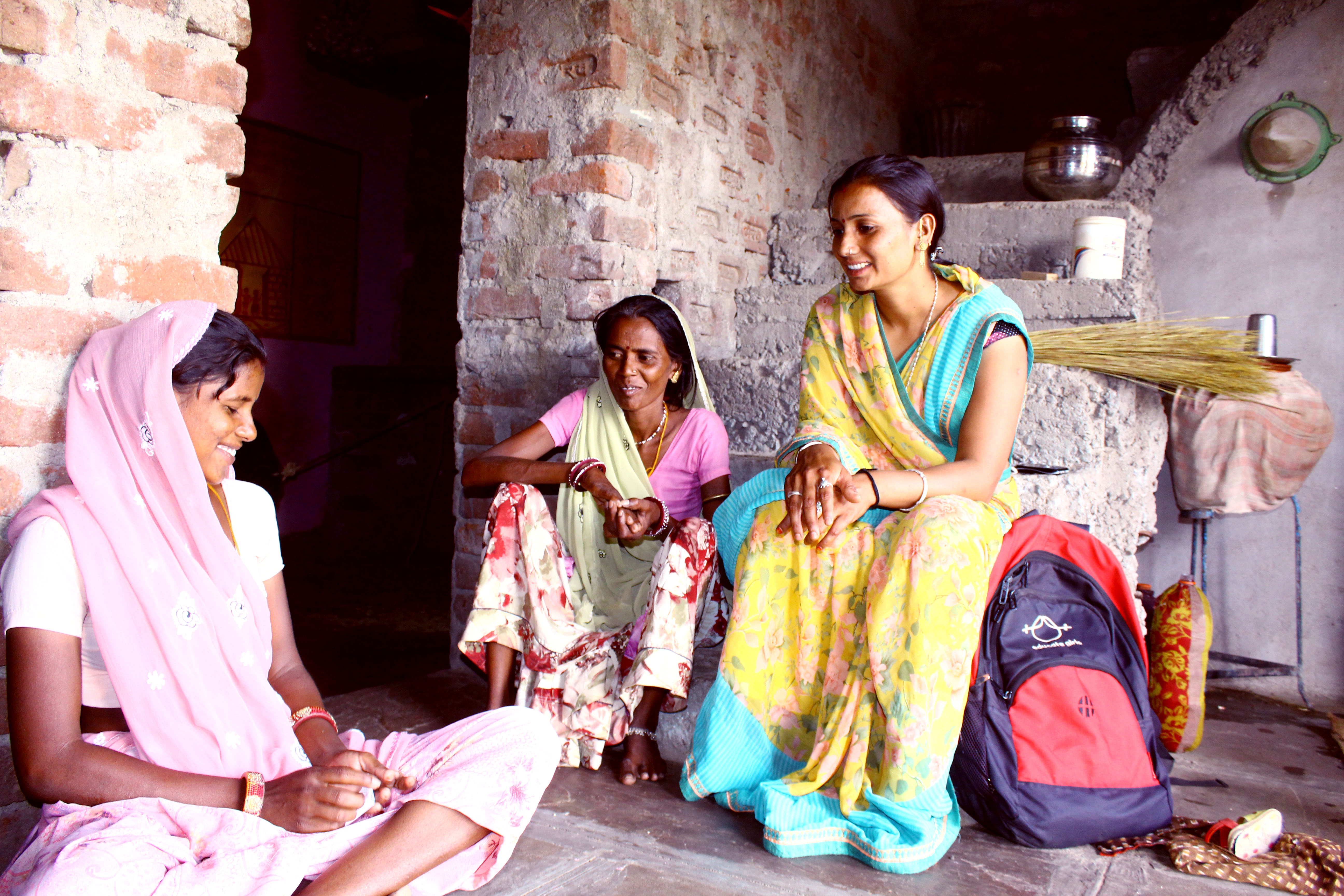
Owing to her father’s unwillingness to send her to a residential school, and the fact that there was no upper primary school in the village, Educate Girls’ ultimately offered Sarika the option of pursuing her education through open school.
In the case of some other girls – they had been out of school for a couple of years, and so they were apprehensive to re-enrol into a classroom with younger students, fearing humiliation by classmates for not being able to cope up with studies. Educate Girls was keen to reach harder-to-enrol older girls who contend with social, cultural or personal pressures. Which is why when mainstream schooling was not an option, Educate Girls strived to convince families to allow their girls to opt for the alternative of open schooling.
Vikram adds, “Many girls hadn’t studied for years and feared the embarrassment of going back to school or simply lacked interest because they were constantly told that education was futile for them. In some cases the barriers to enrolment were about security concerns over girls having to travel long-distances, often being susceptible to ridicule from the community or eve-teasing. A couple of these girls belonged to migrating tribes, making attendance a challenge.” Open schooling offered these girls the possibility of flexible learning. They could take help from their family or friends, Educate Girls’ staff, and teachers, study from home and then appear directly for Grade 10 examinations. “At least this way, we were able to ensure that girls have an opportunity to be a part of formal education and now there is more hope that they will pursue higher studies!” smiles Vikram.”
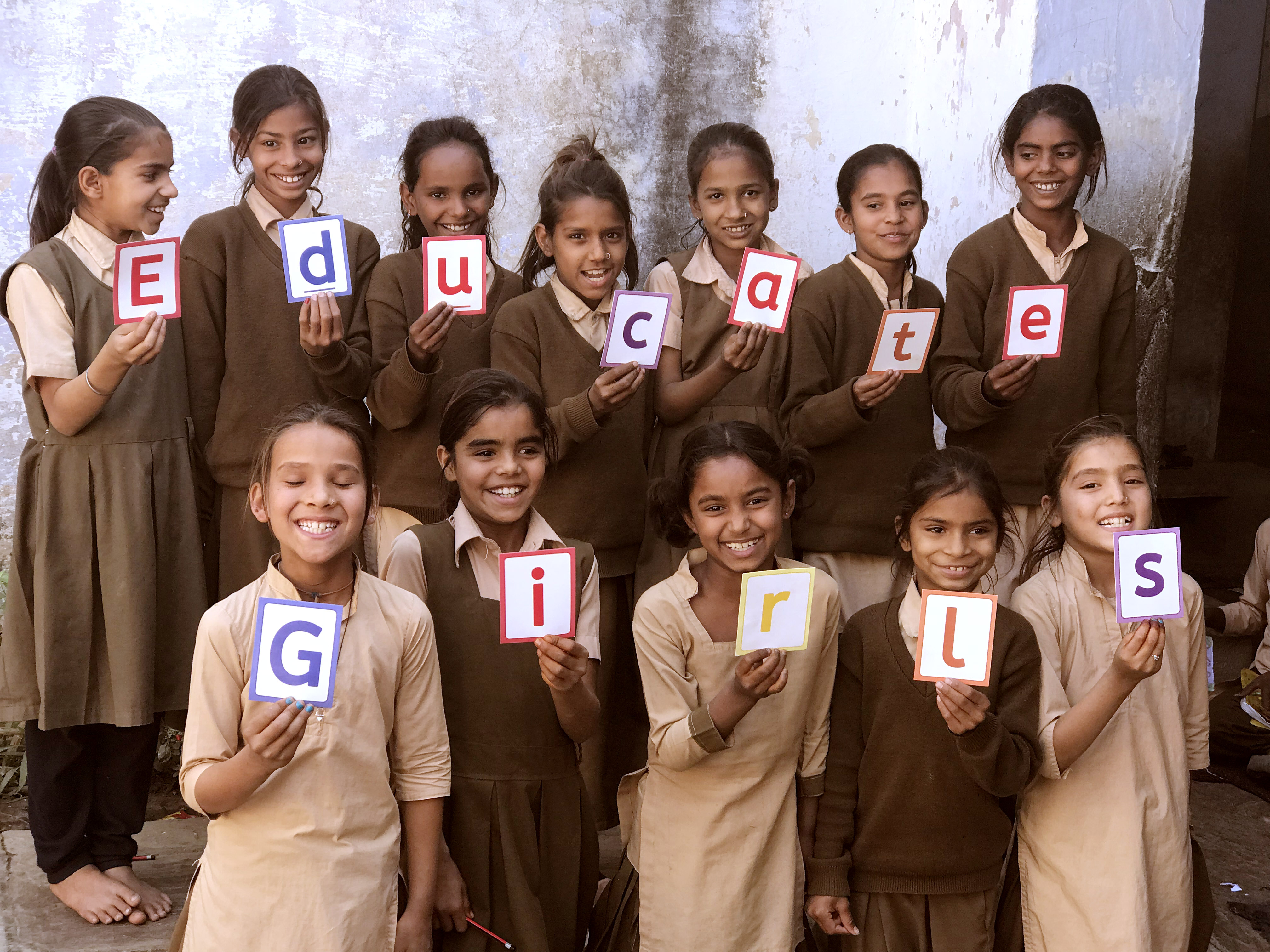
On its completion in 2018, the Educate Girls’ DIB helped enrol 768 out-of-school girls back into the formal education system, thereby achieving 116% of its enrolment target.
Read more about the Educate Girls’ DIB:
IMPROVING QUALITY OF EDUCATION FOR CHILDREN LIVING IN INDIA’S REMOTE, RURAL AND MARGINALISED COMMUNITIES
Educate Girls
Posted on January 28, 2019
Interested in contributing towards
educating girls?
Quick Links
Resources & More
Keep helping. Stay Updated.
Child Protection Policy | Privacy Policy | Terms of Use | Employee Login | IT Assets
Educate Girls is a project of Foundation To Educate Girls Globally (FEGG) | FEGG is registered in India under Section 8 of the Indian Companies Act, 2013.
© 2018 All rights reserved. Educate Girls.

